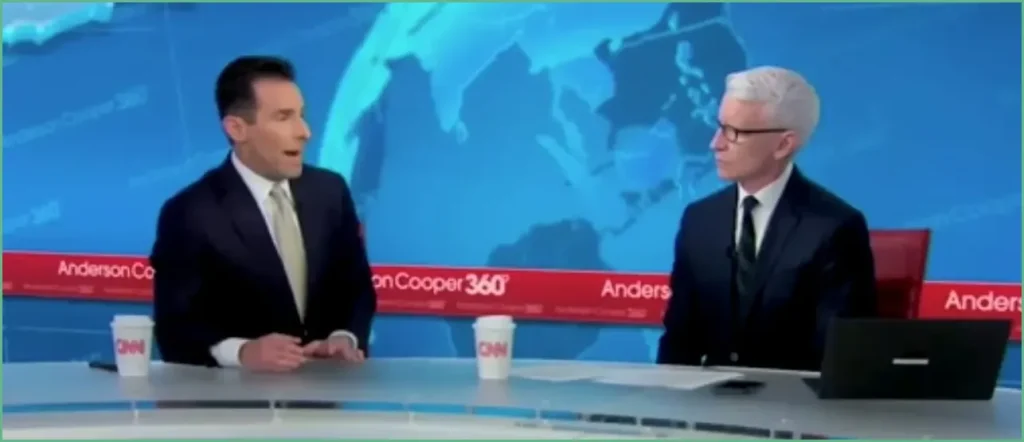CNN’s Elie Honig Says National Guard Deployment Cases Could Reach Supreme Court And Sooner Than People Think
President Donald Trump’s recent National Guard deployments have lit a fuse in the courts, and legal experts say that fuse could lead all the way to the Supreme Court. The deployments span multiple cities — including Washington, D.C., Chicago, Portland, and Atlanta — and they are already prompting fast-moving lawsuits from local officials and advocacy groups. For Republicans and the public who want safe streets, this is not political theater; it is a real fight over who gets to restore order when local leaders won’t.
On TV, CNN legal analyst Elie Honig laid out the judicial logistics plainly: judges across 94 federal districts will make independent decisions, and the patchwork that follows could push at least one emergency appeal up the ladder fast. The White House is using an emergency statute rather than the Insurrection Act, and courts will have to decide, often in hours or days, whether the facts on the ground justify the move. That speed is exactly why a Supreme Court showdown is now a credible prospect.
“This could go to the Supreme Court. Yeah, so these are all playing out in the district courts. There’s 94 federal districts geographically separated in the United States. What the judge does in Oregon is not binding on what the judge does in Chicago. They each have to make their own determination, but these could move very quickly because we’re in emergency posture here, which is why we’re seeing decisions within hours or days,” Honig told Anderson Cooper. “We’re already going to be in the Court of Appeals in Oregon. I think it’s only a matter of time before one or more of these cases reaches the Supreme Court, at least in an emergency.”
That quote matters because it frames the fight as legal, not purely political. Judges will weigh narrow statutory language against messy on-the-ground realities. For conservatives who favor decisive federal action when cities decline to protect residents, the courts are now the arena where the national debate about law and order will be resolved.
Why this matters
Honig also explained the law being used: it is a lesser-known emergency statute that allows the president to mobilize the National Guard in response to rebellion, invasion, or to enforce federal laws. That is different from the Insurrection Act in name and history, but in practice it gives the president a tool to respond when local governments are paralyzed or refuse to cooperate. If appeals race up to higher courts, judges will have to balance deference to the commander in chief with traditional limits on federal intervention.
“So they’re all going to depend on the facts on the ground. The law that Donald Trump is using so far to deploy the National Guard, it’s not the Insurrection Act yet. It’s a different emergency law, and what it says is the president can deploy National Guard if there’s a rebellion, an invasion, or if necessary to enforce federal laws. And so we’re gonna see each jurisdiction,” Honig said. “The argument that the president made is there is chaos in the streets. Now a judge rejected that.”
That exchange captures a core tension: what one party calls necessary enforcement, the other calls federal overreach. Republicans arguing for robust federal action point to rising crime, attacks on law enforcement, and episodes where local officials discouraged cooperation with federal agents. When Border Patrol agents reported being trapped or attacked during patrols, critics asked where local leadership had been in the moment they were needed most.
Legal experts are describing the litigation as a kind of whack-a-mole, with federal judges issuing different rulings based on their district’s unique facts. Courts in Oregon, Chicago, or elsewhere will reach their own conclusions and some will be appealed immediately. That creates the fast-moving, high-stakes path to the appellate courts and, if conflicts persist, to the Supreme Court.
“If anything separately, as you just addressed with the mayor, the federal judge in Chicago has not yet paused the deployment, but that’s again going to depend on an assessment of is there really an emergency? This is going to play out like legal whack-a-mole,” Honig said. “Each time the president deploys National Guard, we’re gonna see a lawsuit, and judges will have to assess, ‘Is this really an emergency?”
The political backdrop is plain: Democratic mayors who have promoted sanctuary policies or restricted police cooperation are clashing with a White House determined to use federal muscle when local action falls short. In Chicago, the mayor recently signed orders limiting federal access to city property, and state officials have filed lawsuits trying to block deployments. Those moves underscore why the administration sees federal deployment as necessary to protect residents.
For voters focused on public safety, the coming legal decisions will feel urgent. If the courts allow the federal posture to stand in emergencies, expect additional deployments in tough-hit areas. If courts curtail that authority, Republicans will argue local leaders will face the political consequences for failing to secure neighborhoods.
Either way, the story unfolding now is both legal and political. It will test statutes few Americans remember, place judges in the middle of heated local conflicts, and likely force the Supreme Court to clarify how far a president can go to restore order. For conservatives, a swift and clear judicial ruling that respects federal authority in emergencies would vindicate the push to use all available tools to keep citizens safe.
